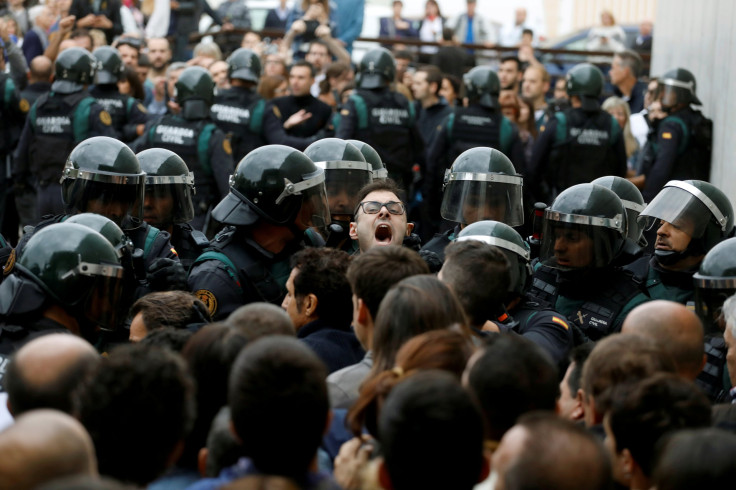Where Is Catalonia? Region’s Independence Movement Seeks Sovereignty

Catalonia is a region in northeast Spain on the French border that seeks to become its own country. The autonomous community held a referendum vote Sunday in which over 90 percent of the 2.3 million voters opted to break away from Spain. Spanish official had banned the vote which they called illegal and attempted to prevent it from happening.
Catalan leaders say they expect to declare independence in the coming days. A regional government source told Reuters that the declaration could come as soon as Monday.
“We are to declare independence 48 hours after all the official results are counted,” said Catalan leader Carles Puigdemont in an interview with the BBC Tuesday. “This will probably finish once we get all the votes in from abroad at the end of the week and therefore we shall probably act over the weekend or early next week.”
Spanish leaders are not happy.
“They have broken the democratic principles of the rule of law,” said Spain’s King Felipe in a televised address Tuesday about Catalan leaders.
Catalan is Spain’s richest region and has its own language, police force and parliament. The region enjoyed a large amount of autonomy after the death of fascist dictator Francisco Franco in 1975 when the region agreed to be an autonomous community within the Spain when the country was transitioning into a democracy. Its population is around 7.5 million and is home to the city of Barcelona, the region’s capital.
The secessionist movement is deeply rooted in the region, but tensions came to a head when in 2010, Spain’s Constitutional Court struck down some provisions of autonomy.
The vote Sunday saw massive violence as Spanish police attempted to prevent the vote. Regional health official said that well over 700 people were wounded in the violence.
The vote saw a turnout of around 42 percent of registered voters.
Spain’s Prime Minister, Mariano Rajoy, pointed to the voter turnout as a reason the vote did not happen.
“The great majority of Catalans have decided not to participate … They have sided with our democracy and the rule of law,” Rajoy said during a news conference. “Some have tried to break the rule of law, and we have answered with serenity and sanity.”
Investigations began Wednesday into key Catalan figures by Spain’s Supreme’s Court on suspicion of sedition.
© Copyright IBTimes 2024. All rights reserved.





















